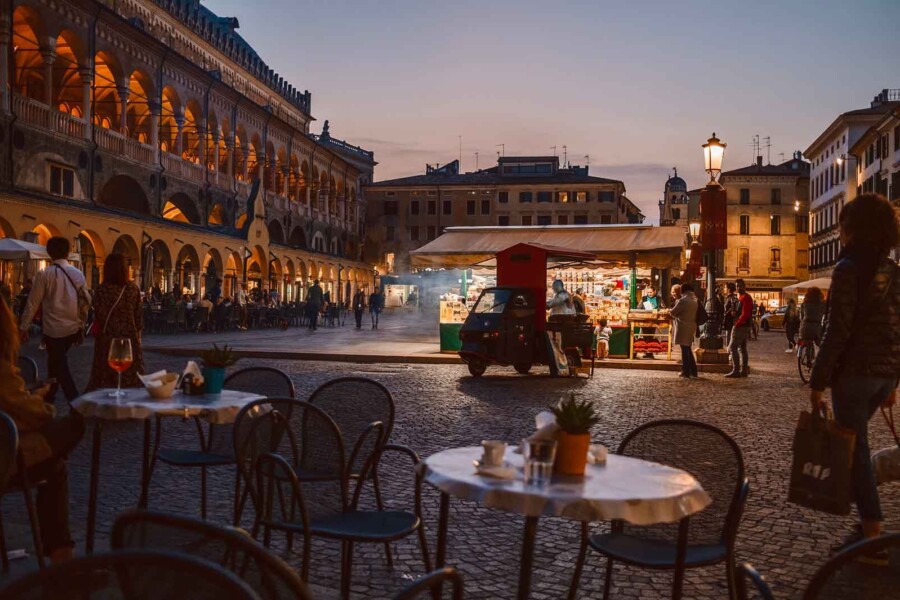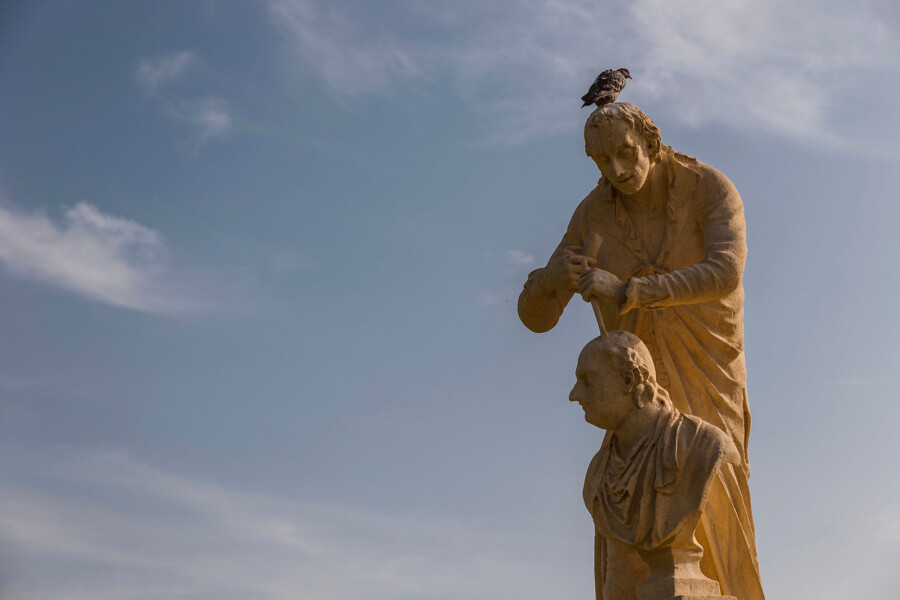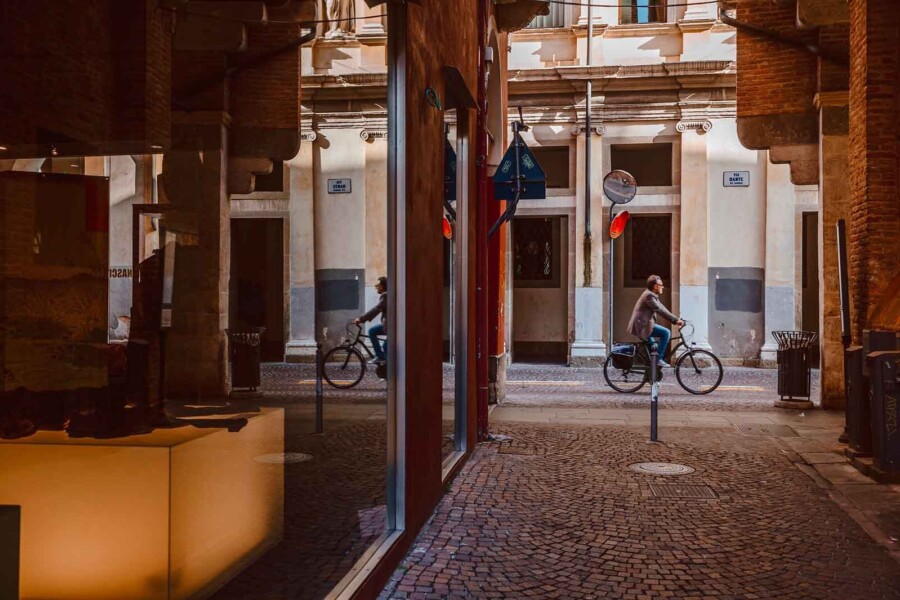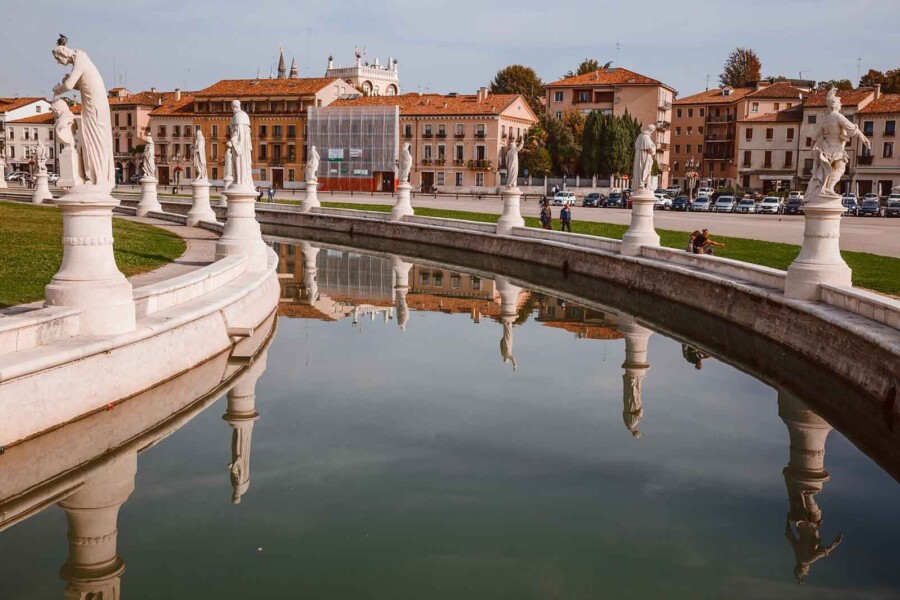Why you’ll fall in love with Padua

Have you ever considered visiting Padua?
This vibrant Italian city, tucked away in the Veneto region, is brimming with history, art, and delicious food.
Whether you're drawn to the timeless beauty of the Scrovegni Chapel, the lush greenery of the Padua Botanical Garden, or the fascinating legacy of its university, Padua promises an unforgettable adventure.
Why visit Padua
Is Padua worth visiting?
Yes, and you’ll be amazed by what this city has to offer!
Imagine wandering through cobblestone streets lined with centuries-old buildings, sipping coffee in historic cafés, and discovering masterpieces of Renaissance art.
Padua has all of this and more. Have you heard of its vibrant student life and lively piazzas?
You’ll feel the energy of this historic university town everywhere you go.
So, why not experience it for yourself?
Padua is just a short train ride from Venice, making it an easy addition to your Italian itinerary.
How many days do you need to see Padua?
If you want to soak up everything Padua has to offer, plan to stay for three days.
This gives you time to marvel at the Basilica of Saint Anthony, explore the Scrovegni Chapel, and relax in the botanical garden without feeling rushed.
Are you short on time?
A well-planned day trip is enough to cover the highlights!
Day trips from Padua
Padua's central location makes it an ideal base for exploring nearby gems:
- Venice: just 30 minutes away by train, Venice is an absolute must-see.
- Verona: love Shakespeare? Visit Juliet’s balcony and explore this romantic city.
- Bologna: if you’re a foodie, you’ll love this city. Check out our Bologna food tour to savor its culinary delights.

What to see in Padua
Scrovegni Chapel
The Scrovegni Chapel is Padua's crown jewel.
Renowned for Giotto’s frescoes, painted between 1303 and 1305, it’s a masterpiece of early Renaissance art.
These frescoes narrate the life of the Virgin Mary and Christ, captivating visitors with their vivid colors and emotional depth.
Don’t forget to book your tickets in advance – slots fill up quickly!
Padua Botanical Garden
Do you enjoy peaceful, green spaces?
The Padua Botanical Garden is the world’s oldest academic botanical garden, established in 1545.
A UNESCO World Heritage Site, it showcases rare plants, medicinal herbs, and innovative landscaping.
It’s a serene retreat for nature lovers and a testament to Padua's academic legacy.
Padua University
Founded in 1222, the University of Padua is a hub of intellectual history.
Its alumni include Galileo Galilei, who lectured here.
Don’t miss the Anatomical Theatre inside Palazzo del Bo, the first permanent structure for human dissection, and the Galileo Museum, which offers a fascinating glimpse into the university’s scientific heritage.
Basilica of Saint Anthony
This majestic church is a pilgrimage site for Catholics worldwide.
Built in 1232, it houses the tomb of Saint Anthony and exquisite artworks.
The Basilica’s chapels, adorned with sculptures by Donatello, and its tranquil cloisters make it a must-visit for history and art enthusiasts.
Prato della Valle
Have you ever seen one of Europe’s largest public squares?
Welcome to Prato della Valle, a stunning 90,000-square-meter elliptical piazza in Padua.
This iconic landmark is surrounded by a canal lined with 78 statues of notable figures from history.
It’s a favorite spot for locals and visitors alike to relax, enjoy the scenery, and take in the vibrant energy of the city. On sunny days, you’ll see families, joggers, and students lounging on the grassy islands or strolling along the pathways.
Astronomical Clock
Installed in 1437, the Astronomical Clock in Padua, located in Piazza dei Signori is one of the oldest functioning astronomical clocks in the world.
This extraordinary timepiece displays not only the hours and minutes but also the phases of the moon, the zodiac signs, and the position of the sun in the sky.
Take a moment to admire the intricate details of its face, including the gold-accented zodiac wheel and celestial symbols.
If you’re curious about its history, you can learn about the legend of its missing Libra sign and the scientific advancements of the era that made such a marvel possible.

Padua food and gastronomy
What is the famous dish in Padua?
Padua boasts a rich culinary tradition. Here are some iconic dishes to try:
- Bigoli in salsa: thick spaghetti with a savory anchovy and onion sauce.
- Risotto with rovinassi: a rich risotto made with chicken or duck offal, cooked in a flavorful meat broth with soffritto and red wine.
- Gallina Padovana: a local chicken dish renowned for its tender meat.
- Fugassa Veneta: a soft and sweet Easter bread.
- Sbrisolona: a crumbly almond dessert.
The best restaurants in Padua
Padua’s dining scene caters to every taste:
Gourmetteria: a cozy spot offering local delicacies like baccalà mantecato.
- Enoteca da Severino: perfect for wine lovers and small plates.
- Caffè Pedrocchi: one of the most historic cafes in Italy.
Where to sleep in Padua: accommodation options
Finding the perfect place to stay enhances your visit. Here are some options:
- Luxury: Hotel Grand’Italia, NH Padova.
- Mid-range: Hotel Al Santo, Hotel Europa.
- Budget: B&B Al Duomo, Ostello Città di Padova.
- Unique stays: Palazzo Mantua Benavides.

Practical tips for visiting Padua
How many days do you need to see Padua?
Three days provide ample time to explore Padua’s historic sites, gardens, and food scene.
Start with the Scrovegni Chapel and Basilica of Saint Anthony, then enjoy a relaxed pace for the rest of your stay.
Is Padua worth a day trip?
Yes!
With its compact city center and efficient public transport, Padua makes for a rewarding day trip.
Key attractions like the Scrovegni Chapel and the Basilica of Saint Anthony can be explored in a single day.
What areas to avoid in Padua?
While Padua is generally safe, avoid the Stanga/Via Venezia and Centro Giotto regions, especially at night.
Exercise caution around the railway station area to ensure a hassle-free visit.
Why Padua deserves a spot on your itinerary
So, are you ready to add Padua to your travel plans?
From Giotto’s breathtaking frescoes to its vibrant food scene, Padua offers a unique blend of history, art, and culture.
Picture yourself strolling through its historic piazzas, savoring a delicious plate of Bigoli in Salsa, and marveling at the timeless beauty of the Scrovegni Chapel.
What are you waiting for?
Start planning your trip to Padua and experience the magic of this hidden gem for yourself!
[Photo credits: ::ErWin @Creative Commons]


